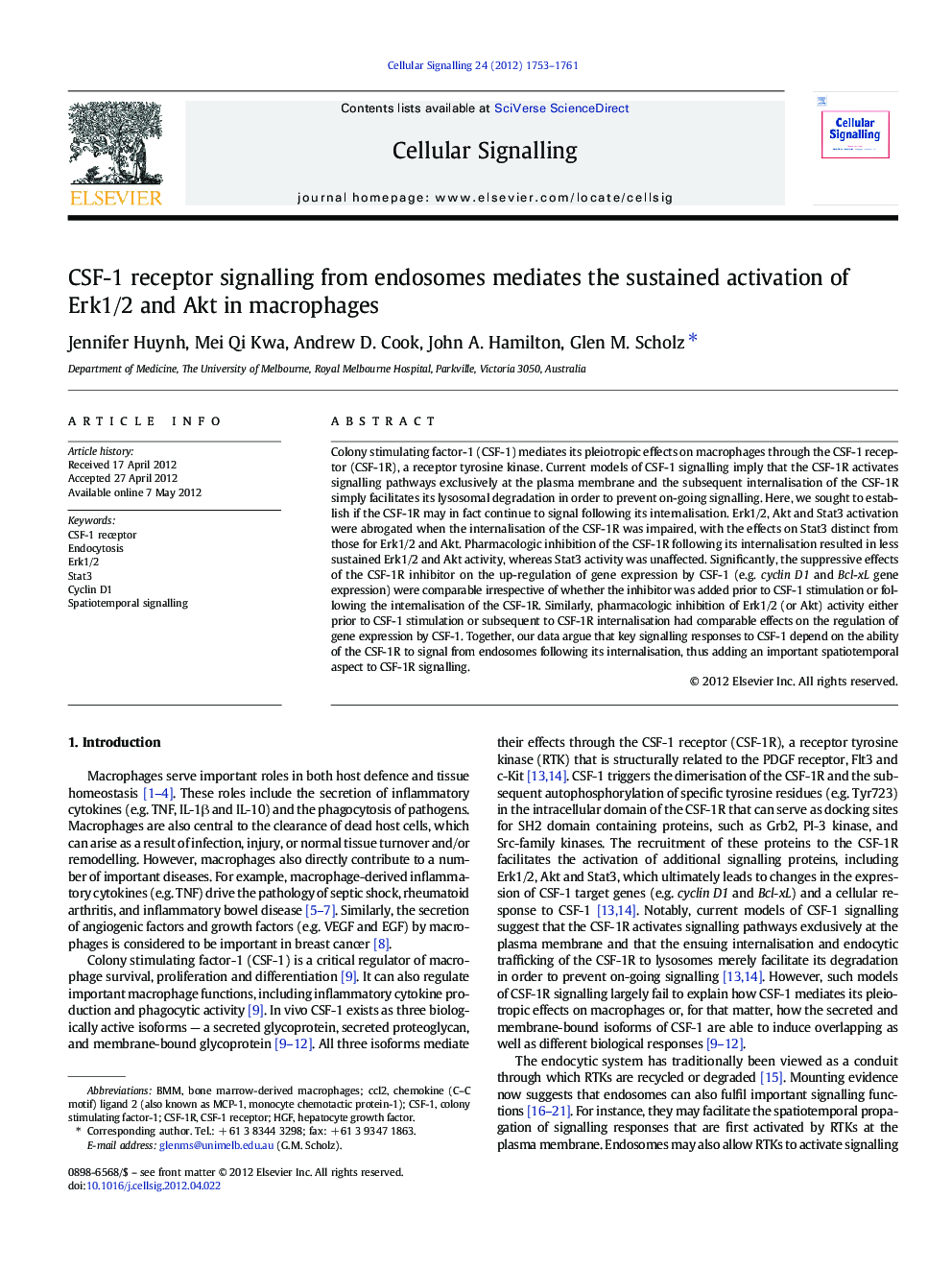| Article ID | Journal | Published Year | Pages | File Type |
|---|---|---|---|---|
| 1963617 | Cellular Signalling | 2012 | 9 Pages |
Colony stimulating factor-1 (CSF-1) mediates its pleiotropic effects on macrophages through the CSF-1 receptor (CSF-1R), a receptor tyrosine kinase. Current models of CSF-1 signalling imply that the CSF-1R activates signalling pathways exclusively at the plasma membrane and the subsequent internalisation of the CSF-1R simply facilitates its lysosomal degradation in order to prevent on-going signalling. Here, we sought to establish if the CSF-1R may in fact continue to signal following its internalisation. Erk1/2, Akt and Stat3 activation were abrogated when the internalisation of the CSF-1R was impaired, with the effects on Stat3 distinct from those for Erk1/2 and Akt. Pharmacologic inhibition of the CSF-1R following its internalisation resulted in less sustained Erk1/2 and Akt activity, whereas Stat3 activity was unaffected. Significantly, the suppressive effects of the CSF-1R inhibitor on the up-regulation of gene expression by CSF-1 (e.g. cyclin D1 and Bcl-xL gene expression) were comparable irrespective of whether the inhibitor was added prior to CSF-1 stimulation or following the internalisation of the CSF-1R. Similarly, pharmacologic inhibition of Erk1/2 (or Akt) activity either prior to CSF-1 stimulation or subsequent to CSF-1R internalisation had comparable effects on the regulation of gene expression by CSF-1. Together, our data argue that key signalling responses to CSF-1 depend on the ability of the CSF-1R to signal from endosomes following its internalisation, thus adding an important spatiotemporal aspect to CSF-1R signalling.
► CSF-1R internalisation is required for optimal Erk1/2 and Akt activation. ► Sustained Erk1/2 and Akt activation requires signalling by the internalised CSF-1R. ► Post-internalisation signalling by the CSF-1R is required for target gene expression. ► Thus, key signalling responses to CSF-1 require the CSF-1R to signal from endosomes.
